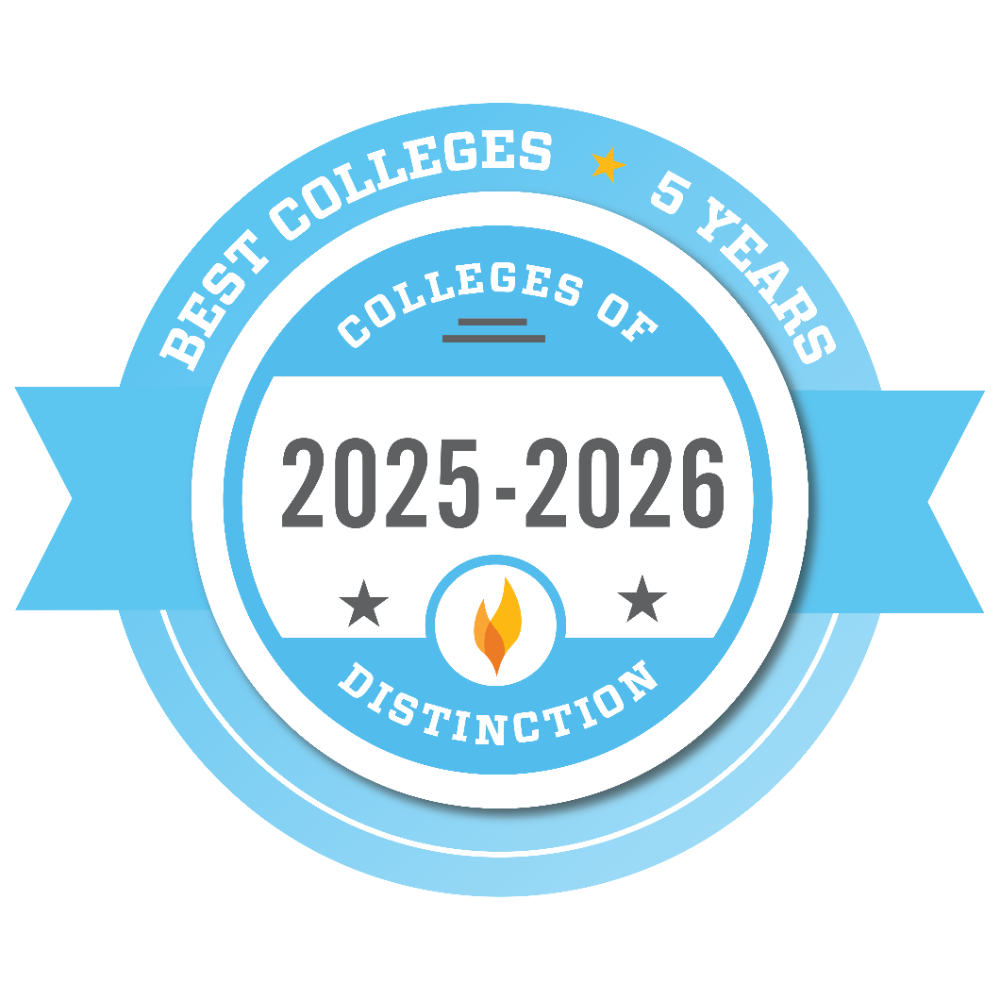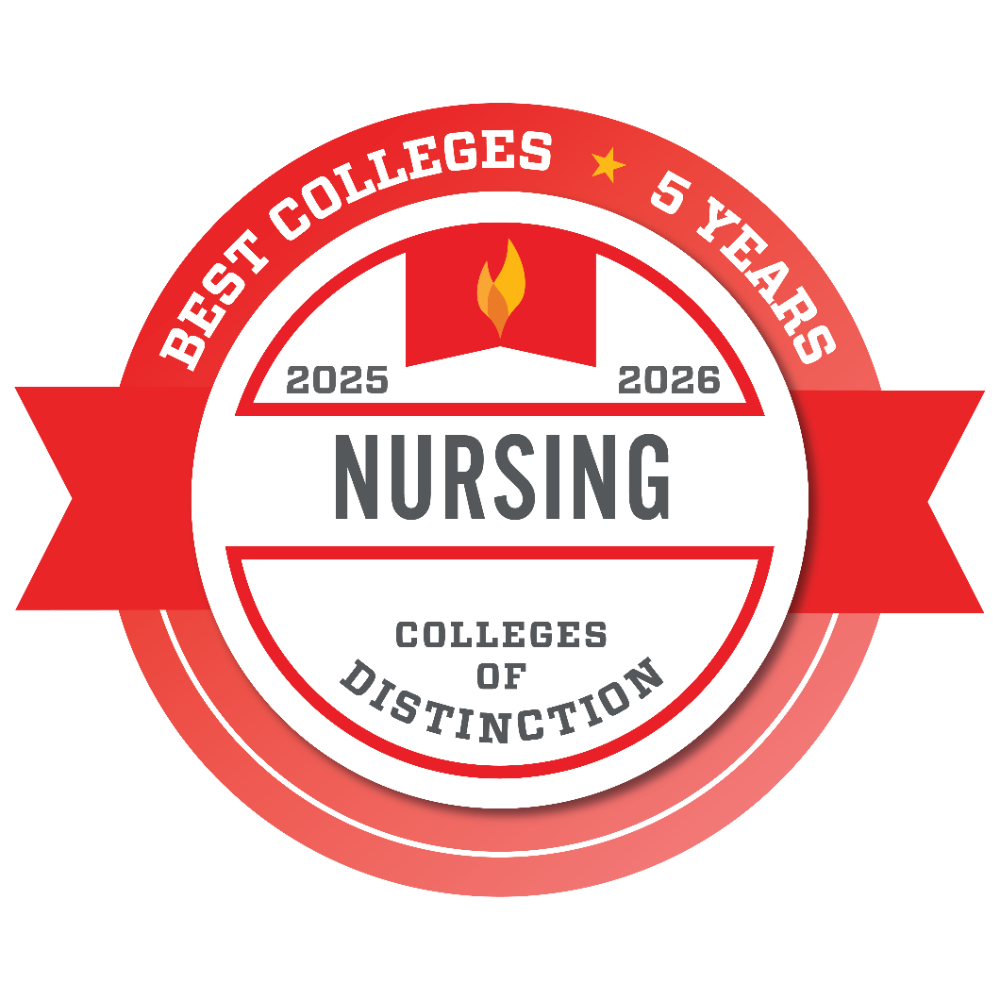Doctor of Nursing Practice-Nurse Anesthesia (CRNA)
-
Degree
Doctoral
-
School
Nursing
-
Program Feature(s)
Hybrid, Sponsorship Opportunities
Program Overview
The purpose of the Doctor of Nursing Practice-Nurse Anesthesia degree program is to prepare baccalaureate registered nurses for the highest level of advanced nursing practice with a specialization in nurse anesthesia to provide safe and equitable patient-centered care.
The DNP-NA program develops leaders and scholars who transform systems of care by improving the quality of care and patient outcomes in various healthcare settings. This mission is achieved through the creation of an environment that supports professional socialization, embraces diverse cultures and learning styles, recognizes achievement and promotes excellence while exemplifying the mission and traditions of the Franciscan Missionaries of Our Lady.
In addition to receiving grant funding for clinical residency, FranU’s DNP nurse anesthesia students have access to state-of-the-art equipment and annually attend Maverick Medical Education workshops hosted by the program. Our comprehensive curriculum and hands-on learning opportunities equip students with the skills needed to practice as a CRNA.
Nurse Anesthesia at FranU
Fast Facts About FranU Nurse Anesthesia
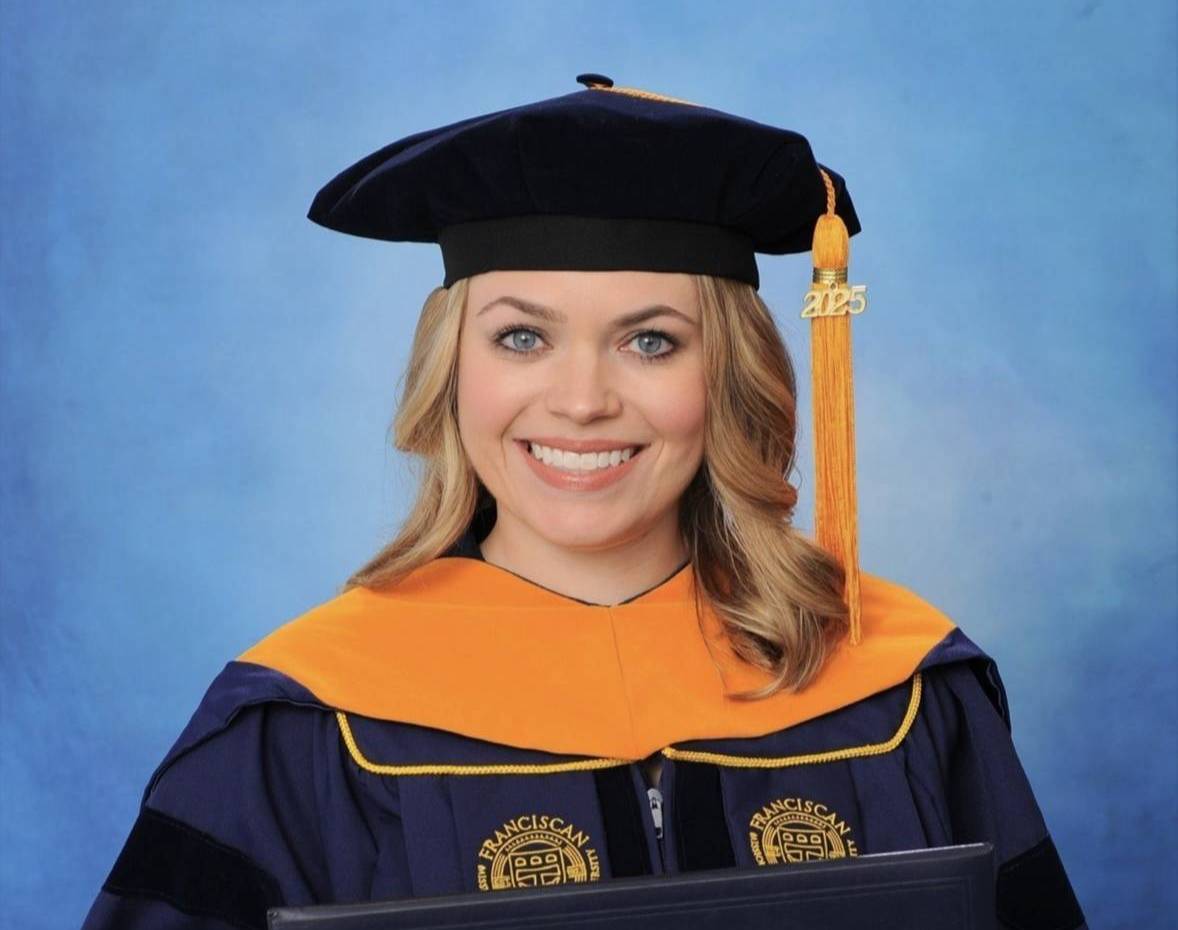
“The faculty of the DNP-NA program is passionate about growing their students into capable CRNAs, and they are always willing to provide guidance and reassurance, day or night. I would not be where I am today, ready to graduate, without the time I spent here at FranU.”
Caroline Warren, BSN
CRNA Student
-
Doctor of Nursing Practice-Nurse Anesthesia at FranU
Program Highlights
-
36-month DNP program - Our 100 credit hour, 36-month program connects students with greater than 20 clinical site partners and allows them to gain 2,500 hours of clinical experience, providing excellent preparation for clinical practice and the National Certification Exam (NCE).
-
Blended curriculum - Students in the DNP nurse anesthesia program will take a blend of online and in-person courses. This means added flexibility for working RNs who want to continue their career during the first eight months of the program.
-
GRE optional - Applicants may optionally submit GRE scores, as results are not required for admission to the program.
-
DNP Scholarly Project - During ANES 7800, students will complete a project that demonstrates their ability to identify a practice or system related problem, synthesize and critically appraise the evidence related to addressing the problem, negotiate within the system to implement sustainable evidence-based change and systematically measure the results of the related change initiative.
-
January to June admission window - The admission cycle for the DNP-NA program is open annually from January 15th to June 15th, with interviews and admissions decisions taking place in late July to early August.
-
In-person interview - Interviews will be conducted in person at FranU around July. Exact dates pending.
-
Grant funding - The graduating class of 2023 was awarded over $115,000 in grants that were applied to clinical residency.
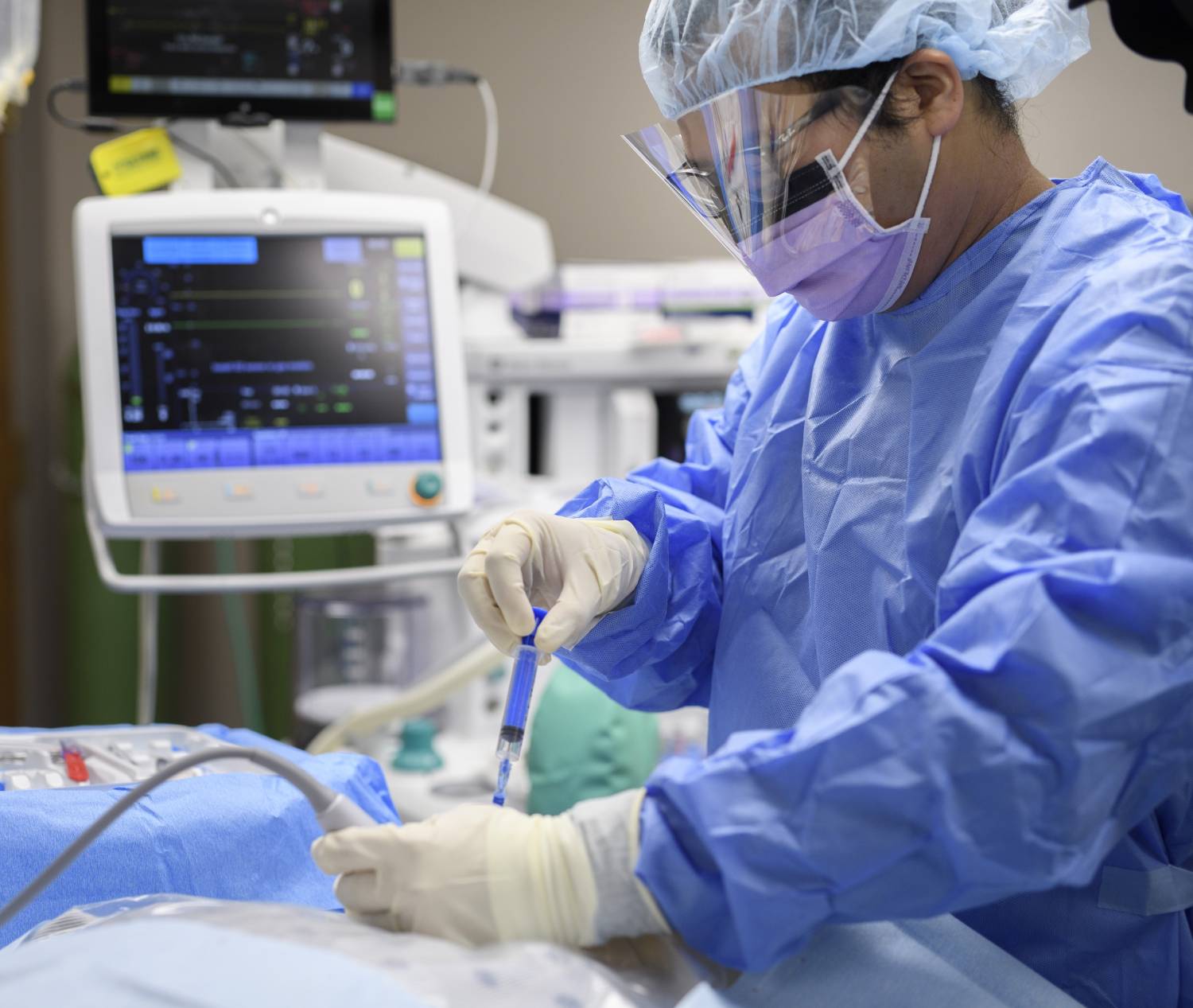
Advance Your Career in a Top-Ranked Field
Nurse Anesthetist is ranked #16 on U.S. News’ Best Jobs list, recognized for its high earning potential, strong job outlook and critical role in patient care. FranU’s CRNA graduates are prepared to serve as compassionate, highly skilled anesthesia providers in hospitals, surgical centers and other clinical environments.
See the ListWhat Can You Do As a CRNA?How to Become a Nurse Anesthetist

Meet Our Expert Nurse Anesthesia Faculty
Our faculty members are highly-skilled professionals with diverse backgrounds and a comprehensive blend of clinical practice, content expertise, leadership and educational experience.
-
DNP-NA Program Goals & Outcomes
Program Goals
As a premier advanced practice nursing educational program, the nurse anesthesia program at FranU will meet the following goals:
-
Adequately prepare graduates to pass the National Board of Certification and Recertification for Nurse Anesthetists National Certification Exam.
-
Admit, retain and graduate students who have the ability to benefit from a nurse anesthesia education.
-
Graduate students who are prepared to enter into nurse anesthesia practice as a DNP-prepared advanced practice registered nurse (APRN).
Program Learning Outcomes (PLOs)
1. Integrate nursing science, advanced levels of systems thinking and accountability in designing, delivering and evaluating evidence-based practice to improve healthcare quality.
2. Demonstrate leadership by applying principles of organizational and systems theory to envision, design, evaluate and manage health organizational systems.
3. Translate research and generate evidence to guide improvements in practice and outcomes of care.
4. Incorporate healthcare information systems and patient care technologies to improve and transform programs of care and care systems.
5. Influence healthcare systems through the design, implementation and evaluation of healthcare policies.
6. Collaborate interprofessionally in the development and implementation of practice models, peer review, practice guidelines, healthcare policy, standards of care and scholarly projects.
7. Generate, implement and evaluate health promotion/disease prevention interventions and strategies to address gaps in the care of individuals and populations.
8. Apply critical thinking and requisite knowledge to provide safe, ethical, evidence-based anesthesia care services to culturally-diverse individuals across the lifespan.
View DNP-NA program FAQs.
Student Outcomes & Career Readiness
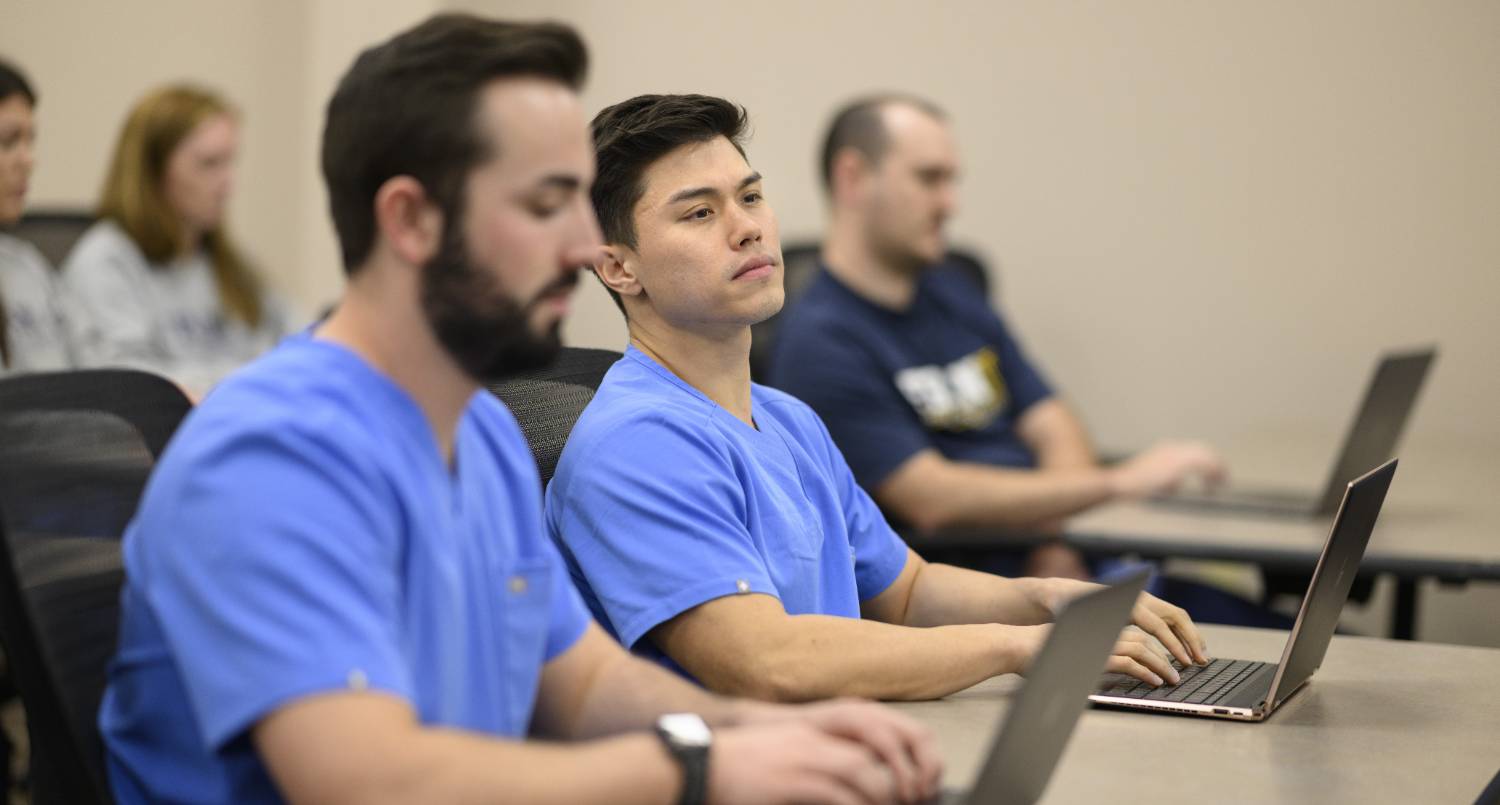
Graduation Rate & Certification Pass Rate
The DNP-NA doctoral class of 2024 had a 94.4% first-time pass rate and a 100% second-time pass rate on the NBCRNA NCE. Since the August 2005 inception of the Master of Science in Nurse Anesthesia (MSNA) program at Franciscan Missionaries of Our Lady University, there have been 485 graduates. Of these graduates, 458 passed the National Board of Certification and Recertification of Nurse Anesthetists (NBCRNA) National Certification Exam (NCE) on the first attempt 94.4% and 99.8% of all FranU graduates have passed the NCE. The attrition rate for the class of 2024 was 5% as defined by the COA, which requires reporting all students who began the program vs those who ultimately graduate, regardless of the reason for withdrawal or dismissal.
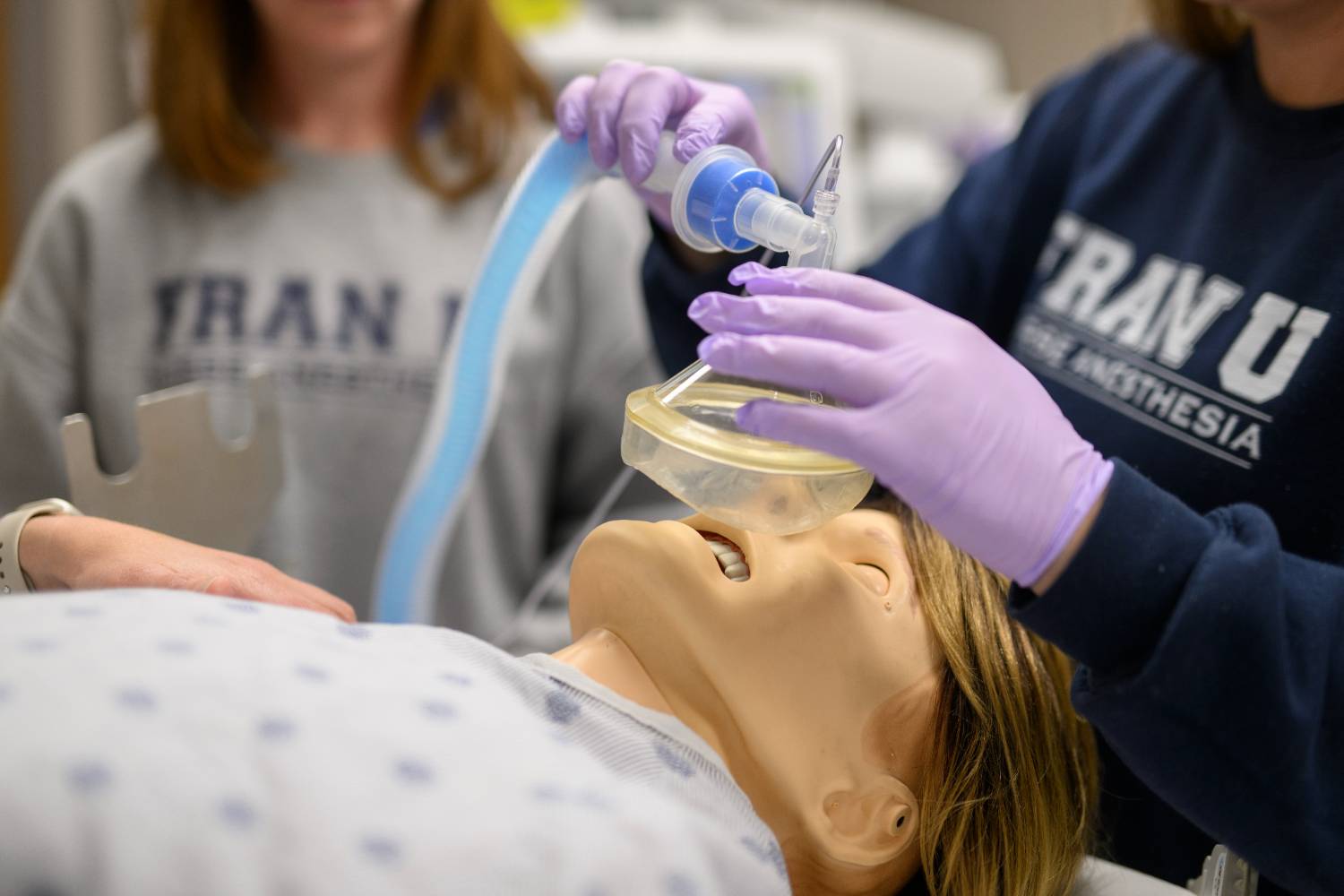
Employment Rate & Outlook
Employers consistently rate the Franciscan Missionaries of Our Lady University MSNA and DNP-NA graduates as excellent practitioners with a broad knowledge base who demonstrate competency in administering anesthesia in all specialty areas. Additionally, graduates indicate the program prepared them to function as competent anesthesia providers. Alumni of Franciscan Missionaries of Our Lady University’s nurse anesthesia program serve in leadership roles for state associations, and several hold positions within the program as faculty. The employment rate as a Certified Registered Nurse Anesthetist for the Class of 2024 is 100% at six months post-graduation.
DNP-Nurse Anesthesia Admissions Information
Admission to the Nurse Anesthesia program occurs once each year. The application deadline is June 15th. Classes begin in January of the following year. Admission to the Nurse Anesthesia program is competitive and is based on the stated admission requirements. Applicants must ensure their applications are complete by the published deadline to be considered for an interview. Qualified applicants are interviewed by program representatives. Once admitted to the program and prior to beginning coursework, the student must obtain unencumbered RN licensure in the State of Louisiana and PALS certification.
To be considered for admission to the nurse anesthesia doctorate program, applicants must meet the following criteria:
-
Baccalaureate or higher degree in nursing from a college or university fully accredited by a recognized accrediting agency of the U.S. Department of Education.
-
Cumulative weighted grade point average of 3.0 on a 4.0 scale; all attempted courses prior to admission (graduate and undergraduate) will be factored into the cumulative grade point average calculation
-
Minimum of 1-year full-time recent experience as a registered nurse in an adult critical care unit
-
Note: Recent experience is defined as within the previous two calendar years; critical care experience in other areas (e.g., PICU, NICU) may be considered provided the applicant demonstrates competence with managing unstable patients, invasive monitoring, ventilator management and critical care pharmacology.
-
-
Current, unencumbered license to practice as a registered nurse (RN) in any state with eligibility for licensure in Louisiana
-
Current Basic Life Support (BLS) and Advanced Cardiovascular Life Support (ACLS) certifications
-
Completion of application requirements by June 15th as stated in the graduate application instructions
-
Submission of three professional letters of recommendation (one from current immediate supervisor, one from a peer)
-
Ability to meet and comply with the DNP-NA Core Performance Standards, which can be found in the DNP-NA Handbook
-
CCRN certification required for reapplication
-
Completion of Casper Open-response Situational Judgement Test. This test is associated with a $50 testing fee and $16 distribution fee. All applicants, including reapplicants, are required to take the Casper Exam prior to sitting for an interview. Exam dates are limited. Please see Casper Situational Judgement Assessment FAQs for more information.
*Learn about the Casper test at Acuity Insights’ webinar on February 18 at 1:00 pm EST. It will cover what Casper is, how it works and tips for a successful testing experience. A recording will be available at takecasper.com after February 19.*
Additional information can be found in our application FAQs and interview and decision FAQs.
In addition to meeting all other applicable requirements for admission, non-native speakers of English must demonstrate sufficient English language proficiency. This can be demonstrated by submitting any one of the following: an SAT verbal/critical reading score of at least 430; an ACT English subtest score of at least 18; a Duolingo English Test score of at least 105; an International English Language Testing System (IELTS) test score of at least 6.5; or a TOEFL iBT (internet-based test) score of 79 or paper-based test with sub scores each being 20 or higher.
Find out more about registration and information for the IELTS Test.
See dates and registration information for the TOEFL.
Find dates and registration information for the SAT.
Learn about dates and registration information for the ACT.
Find out more about registration and information for the Duolingo English Test.
-
Casper open-response situational judgment test results
-
Science grade point average
-
Grade point average from the last 60 hours of coursework
-
Clinical knowledge evaluation
-
CCRN certification status
-
GRE scores
-
318 Applications received
-
115 Interviews offered
-
40 Accepted
-
3.33 Average overall grade point average for those accepted
-
3.23 Average science grade point average for those accepted
View admitted student FAQs.
Tuition and Costs
PDF 2025 - 2026 DNP-NA Tuition, Fees and Other Costs
2025 - 2026 Tuition, Fees and Other Costs
| Semester | Credit Hours | Tuition/Fees | Course Fees | Total |
|---|---|---|---|---|
|
1 |
9 |
$7,156.70 |
$69.60 |
$7,226.30 |
|
2 |
6 |
$5,256.60 |
|
$5,256.60 |
|
3 |
18 |
$18,903.00 |
|
$18,903.00 |
|
4 |
18 |
$20,731.80 |
$319.60 |
$21,051.40 |
|
5 |
10 |
$11,329.40 |
|
$11,329.40 |
|
6 |
12 |
$13,680.00 |
|
$13,680.00 |
|
7 |
10 |
$12,701.00 |
$354.60 |
$13,055.60 |
|
8 |
9 |
$11,525.70 |
|
$11,525.70 |
|
9 |
8 |
$10,350.40 |
$1,410.00 |
$11,760.40 |
|
*Total |
100 |
|
|
$113,788.40 |
*Tuition costs do not include textbooks or any additional costs associated with this program.
*Application and graduation fees are assessed separately. Tuition and fees rates are subject to change.
Franciscan Missionaries of Our Lady University offers dedicated financial aid counselors to help students navigate the financial aid process. All students are encouraged to complete the Free Application for Federal Student Aid (FAFSA) to determine eligibility for federal assistance.
The DNP-NA program receives funding from the U.S. Department of Health and Human Services
through the Health Resources and Services Administration (HRSA) Nurse Anesthetist
Traineeship (NAT) grant.
Key objectives of the HRSA NAT Grant include:
- Increasing the number of CRNAs serving in medically underserved areas
- Reducing health disparities by preparing students to manage substance use disorders
- Expanding anesthesia obstetric services for diverse populations
- Enhancing student diversity to reflect national demographics
Grant funds are awarded as stipends to DNP-NA students to help offset clinical training expenses.
Awarded in 2018 and renewed in 2021, the FMOL Sisters Graduate Scholarship provides $25,000 annually to support DNP-NA students. These funds enable expanded clinical rotations in rural and underserved communities, offering hands-on experience with seasoned rural healthcare providers. Scholarships are awarded directly to students to help cover costs associated with rural clinical education.
Endowment support allows the DNP-NA program to offer advanced simulation experiences and educational tools, including:
- Annual regional anesthesia workshop by Maverick Medical Education
- Apex Board Review Course, Smart Bank and Bootcamp access
- High-fidelity ultrasound simulators for TEE and TTE
- ORSIM virtual bronchoscope trainer
- ScanNav Anatomy Peripheral Nerve Block Trainer
These resources enhance clinical readiness and support student success on certification exams.
Hear From Our Students
Hear directly from our students as they share their experiences, insights and what makes the Nurse Anesthesia program at FranU special.
My experiences in the FranU DNP-NA program have been truly transformative. While the rigorous academics and high-fidelity clinical exposure have been challenging, I've always felt supported. The faculty's unwavering dedication to excellence, combined with encouragement from my peers, has provided me with the skills and resources I need to succeed in both the classroom and clinical setting."
Cole Legrange, BSN
DNP-NA Student

From the very beginning of the program, I have felt genuinely supported by the faculty. The clinical experience is exceptionally well-rounded, offering exposure to a Level I trauma center, obstetrics, regional and cardiovascular anesthesia and CRNA-only practice sites that each provide valuable opportunities to strengthen clinical acumen and expertise. Moving to Louisiana from out of state was initially intimidating, but the encouragement and support from my cohort, faculty and clinical mentors quickly made it feel like home."
Katie Bethke, BSN
DNP-NA Student

The FranU DNP-NA program faculty have been invaluable on my journey to becoming a nurse anesthesiologist. The experienced faculty incorporate current practices and modern anesthetic techniques into the classroom through various learning methods. With the recently updated SETH lab, guest speakers and student grand rounds, I have experienced a smooth transition into clinical rotations. The program has not only prepared me both academically and clinically but has also fostered a strong sense of community."
Ethan Treigle, BSN
DNP-NA Student

The faculty within FranU's DNP-NA program regularly go above and beyond to make sure I am getting what I need. From meeting one-on-one in lecture to helping me juggle being a grad student and an officer in the Army Reserves while ensuring clinical rotations are meeting all standards. They truly care about their students, and it’s proven by their actions every week. I know upon graduation, I will be well prepared to enter the professional field of Nurse Anesthesia."
Brock Zeringue, BSN
DNP-NA Student

Resources
| Document Title | Type | File Size | |
|---|---|---|---|
|
DNP NA Program Handbook 2025-2026 |
|
760 KB |
|
|
2025 - 2026 DNP-NA Tuition, Fees and Other Costs |
|
131 KB |
|
|
FranU Student Handbook |
|
813 KB |
Accreditation Information
Nurse Anesthesia Program Accreditation
Franciscan Missionaries of Our Lady University's nurse anesthesia DNP program is accredited by the Council on Accreditation of Nurse Anesthesia Educational Programs (COA), 10275 W. Higgins Rd., Suite 906, Rosemont, IL 60018-5603 and can be reached at 224-275-9130, via the web at https://www.coacrna.org or by email: accreditation@coacrna.org. The program received ten years of continued accreditation in October of 2018 and is scheduled for its next consideration for continued accreditation in Fall 2028.
See the list of educational programs accredited by the COA.
Regional Accreditation
For information about our SACSCOC accreditation, please visit our Institutional Accreditation page.
State Board of Nursing Accreditation
The Franciscan Missionaries of Our Lady University Doctor of Nursing Practice-Nurse Anesthesia program is fully approved by the Louisiana State Board of Nursing at 17373 Perkins Road, Baton Rouge, Louisiana 70810, (225) 755-7500.
Louisiana State Board of Nursing
Licensure
Requirements for professional licensure and certifications can vary by state and can change without notice. All students should consult the state licensing body in the state in which they reside to be licensed to ensure that the degree they earn will meet requirements for licensure in that state.
The Learning Experience
Get a preview of FranU’s Doctor of Nursing Practice-Nurse Anesthesia program. Check out the complete curriculum.
-
ANES 7425 Advanced Anatomy, Physiology and Pathophysiology I
-
ANES 7445 Advanced Pharmacology for Nurse Anesthesia
-
NURS 7320 Healthcare Policy and Policy Advancement
-
ANES 7340 Anesthesia Skills and Simulation Lab
-
ANES 7320 Anesthesia Seminar III
Where Progress Makes Headlines
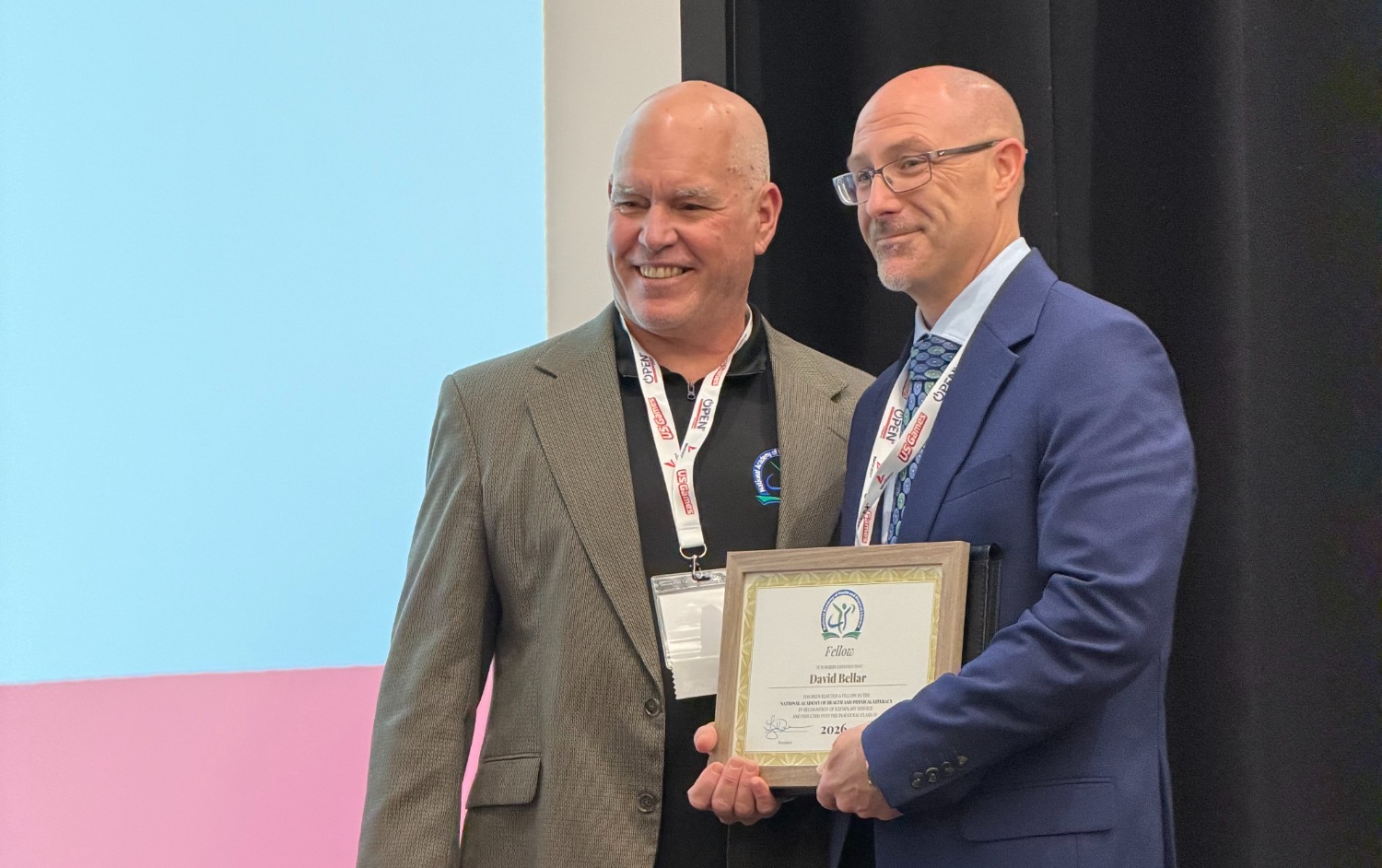
FranU President Dr. David M. Bellar Named Inaugural NAHPL Fellow
Dr. Bellar was selected as a member of the inaugural class of the National Academy of Health and Physical Literacy Fellows.

2026 Hall of Distinction Award Recipients
Please join us for the Hall of Distinction on March 24, 2026 at 4:00 p.m. in St. Francis Hall.

2025-2026 FranU Faculty Promotions in Rank
We recognize the following FranU faculty for their promotion in rank effective with the 2025-2025 Academic Year.


